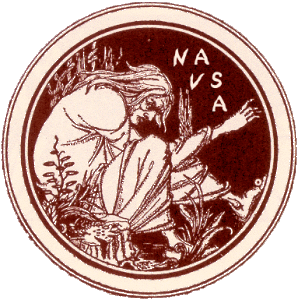 Judges: Elizabeth Carolyn Miller (UC Davis), Nathan Hensley (Georgetown), John M. Miller (Allegheny College)
Judges: Elizabeth Carolyn Miller (UC Davis), Nathan Hensley (Georgetown), John M. Miller (Allegheny College)
Administrator: Deanna K. Kreisel (University of British Columbia)
We are delighted to announce the results of the first annual Vcologies Early Career Paper Prize. The pleasure in evaluating and learning from these essays was, we all remarked, keen: the diversity of the pool, the strength and creativity of analysis across entries, the range of approaches and methods—all of this made the process of thinking alongside these papers fascinating in the extreme. We were impressed with the high quality of the essays individually; we were also struck by the incredible variety of ways in which “the ecological” figured in these papers collectively. Climate change, feminist science, energy history, materialisms old and new, imperial landscape, animal studies, and a number of other topics all figured here: we take this diversity to index the strength and breadth of this exciting, and still developing, new subfield of research on the nineteenth century.
WINNER
Maddison McGann, Ph.D. candidate, University of Iowa
“‘Dreaming of Dawn’: Anticipation in Charlotte Brontë’s Shirley”
Maddison McGann’s essay represents a formidable argument—one of the best we know of— for why Victorian studies should be at the forefront of ecological thinking in the humanities. It explores the problem of “archive-time”: the possibility of (in the essay’s words) “measuring historical difference” by “mov[ing] to the past – to a time in which the future is nothing more than an eventual present—a ‘coming-into’ that we can anticipate,” in order to consider the past as a repository for other possible futures. Focusing on Charlotte Brontë’s industrial novel Shirley (1849), long considered one of the author’s least successful efforts, McGann reexamines it from the standpoint of a now well-established discussion of the British Industrial Revolution, and particularly the textile industry, as the launching point for fossil capitalism and the dawn of the Anthropocene. McGann accounts for Shirley’s strangeness as a novel—its lack of unity, its unanticipated conclusion—by reading it as "symptomatic" of the profound disruptions of its era. The scene of the industrialization of Britain’s cotton mills, depicted in the novel, was one where “out-of-work mill workers and unused cloth [were] in equal abundance,” where a new atmosphere was born, filled with “chimney smoke and sulphur-clouds, anarchy and angst.” McGann’s beautifully written essay offers an analysis of the novel’s “anticipatory structure” in light of our current ecological crisis, and asks what “the history of the environment that Brontë provides[,] one characterized by fantasy and sublimation” might offer us today, as we struggle to break from the path dependencies that connect our pasts with our futures.
HONORABLE MENTION
Megan O'Donnell, Ph.D. candidate, University of Delaware
“Forms of Power: Energy and the Ecological Affordance of Victorian Fairies”
While many exciting works of environmental criticism revisit well-known texts and historical developments with a new appreciation for their ecological significance, Megan O’Donnell’s “Forms of Power” boldly strikes out in the opposite direction. Taking as her primary subject “The Diamond Lens,” a short piece of weird fiction by Irish emigrant Fitz-James O’Brien, O’Donnell demonstrates how the cultural history of ecological ideas stands to benefit from scholars willing to engage figures and works that have been overlooked in standard accounts of the Victorian era. “The Diamond Lens” is a prime example. At first glance, the story seems to be a bizarre, inscrutable tale about a murderous sociopath who falls in love with a microscopic fairy. Seen through the powerful optic of O’Donnell’s critical essay, however, the story is revealed to be much more lively and significant than it appears: her reading ably traces the text’s use of narrative form to explore the relationships between energy circuits, interspecies empathy, and ecological responsibility. Like the super-powered microscope at the heart of O’Brien’s tale, then, O’Donnell’s essay shows an impressive ability to startle us out of old habits of looking at the world, inviting us to engage in unfamiliar modes of reading and seeing that promise to expand our ability to think ecologically.